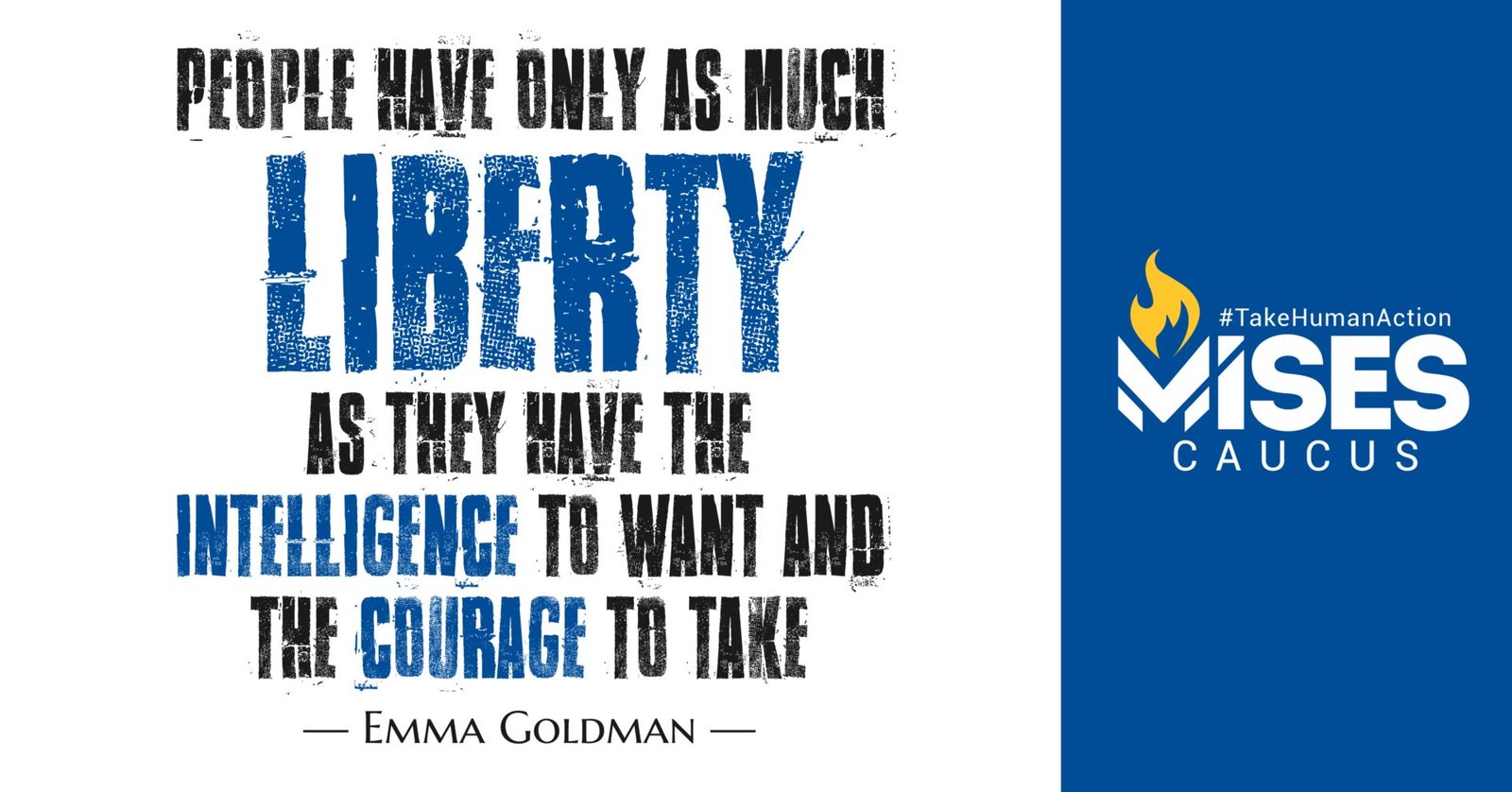The most dangerous man to any government is the man who is able to think for himself. —Thomas DiLorenzo, The Problem with Socialism
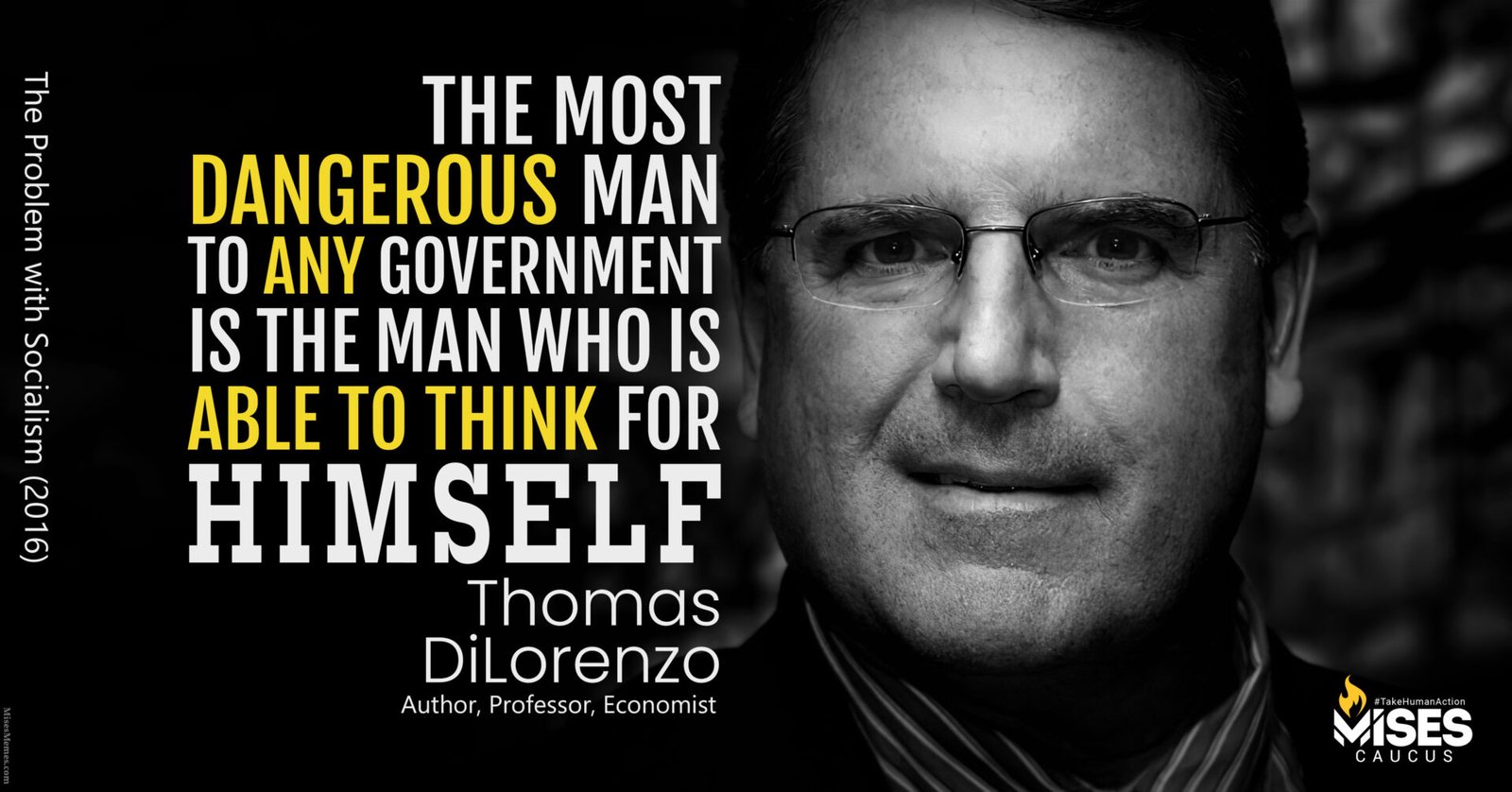

The most dangerous man to any government is the man who is able to think for himself. —Thomas DiLorenzo, The Problem with Socialism
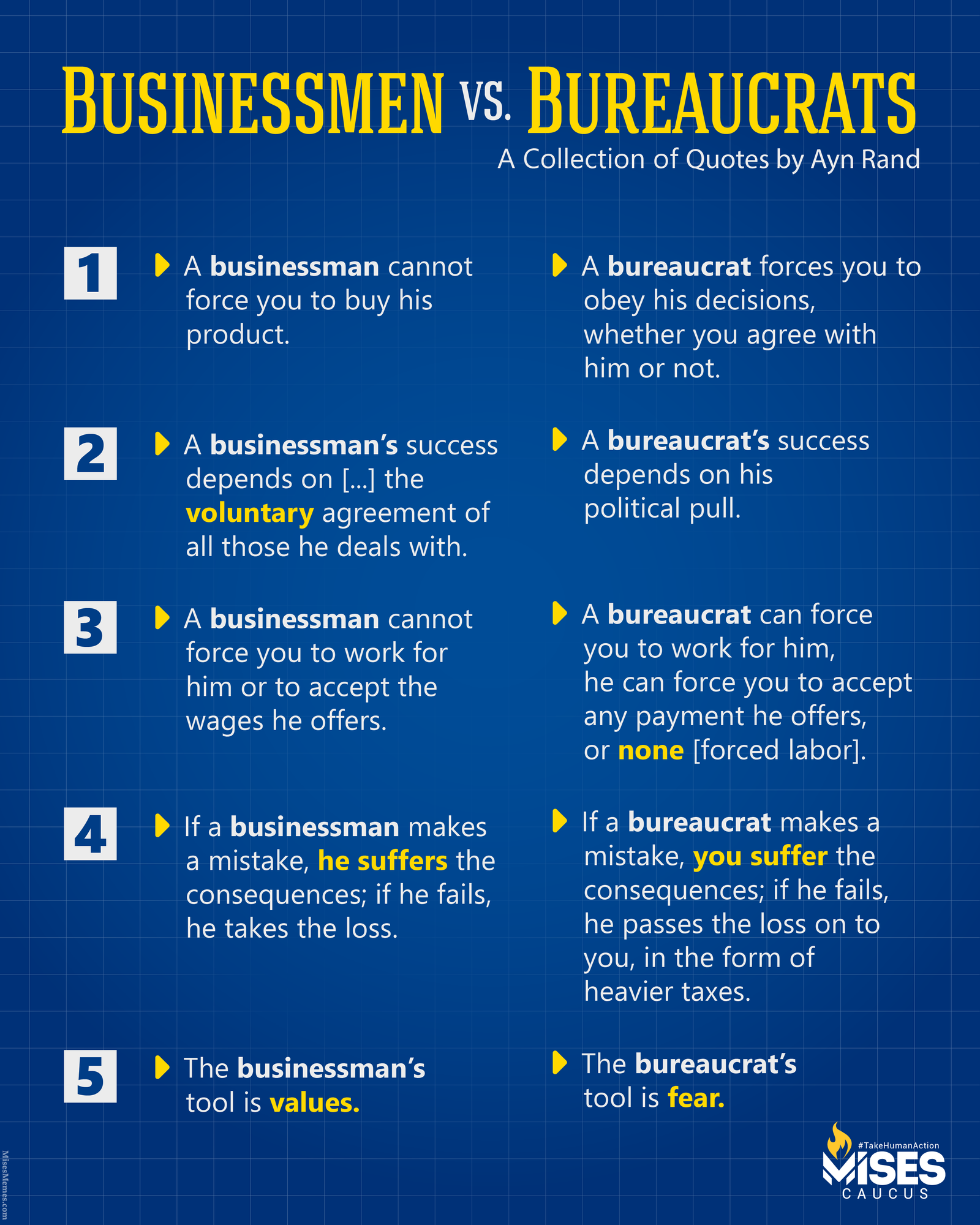
A businessman’s success depends on his intelligence, his knowledge, his productive ability, his economic judgment—and on the voluntary agreement of all those he deals with: his customers, his suppliers, his employees, his creditors or investors. A bureaucrat’s success depends on his political pull. A businessman cannot force you to buy his product; if he makes a mistake, he suffers the consequences; if he fails, he takes the loss. A bureaucrat forces you to obey his decisions, whether you agree with him or not—and the more advanced the stage of a country’s statism, the wider and more discretionary the powers wielded by a bureaucrat. If he makes a mistake, you suffer the consequences; if he fails, he passes the loss on to you, in the form of heavier taxes.
A businessman cannot force you to work for him or to accept the wages he offers; you are free to seek employment elsewhere and to accept a better offer, if you can find it. (Remember, in this context, that jobs do not exist “in nature,” that they do not grow on trees, that someone has to create the job you need, and that that someone, the businessman, will go out of business if he pays you more than the market permits him to pay you.) A bureaucrat can force you to work for him, when he achieves the totalitarian power he seeks; he can force you to accept any payment he offers—or none, as witness the forced labor camps in the countries of full statism.
The businessman’s tool is values; the bureaucrat’s tool is fear.
—Ayn Rand
A businessman’s success depends on his intelligence, his knowledge, his productive ability, his economic judgment—and on the voluntary agreement of all those he deals with: his customers, his suppliers, his employees, his creditors or investors. A bureaucrat’s success depends on his political pull. A businessman cannot force you to buy his product; if he makes a mistake, he suffers the consequences; if he fails, he takes the loss. A bureaucrat forces you to obey his decisions, whether you agree with him or not—and the more advanced the stage of a country’s statism, the wider and more discretionary the powers wielded by a bureaucrat. If he makes a mistake, you suffer the consequences; if he fails, he passes the loss on to you, in the form of heavier taxes.
A businessman cannot force you to work for him or to accept the wages he offers; you are free to seek employment elsewhere and to accept a better offer, if you can find it. (Remember, in this context, that jobs do not exist “in nature,” that they do not grow on trees, that someone has to create the job you need, and that that someone, the businessman, will go out of business if he pays you more than the market permits him to pay you.) A bureaucrat can force you to work for him, when he achieves the totalitarian power he seeks; he can force you to accept any payment he offers—or none, as witness the forced labor camps in the countries of full statism.
The businessman’s tool is values; the bureaucrat’s tool is fear.
—Ayn Rand
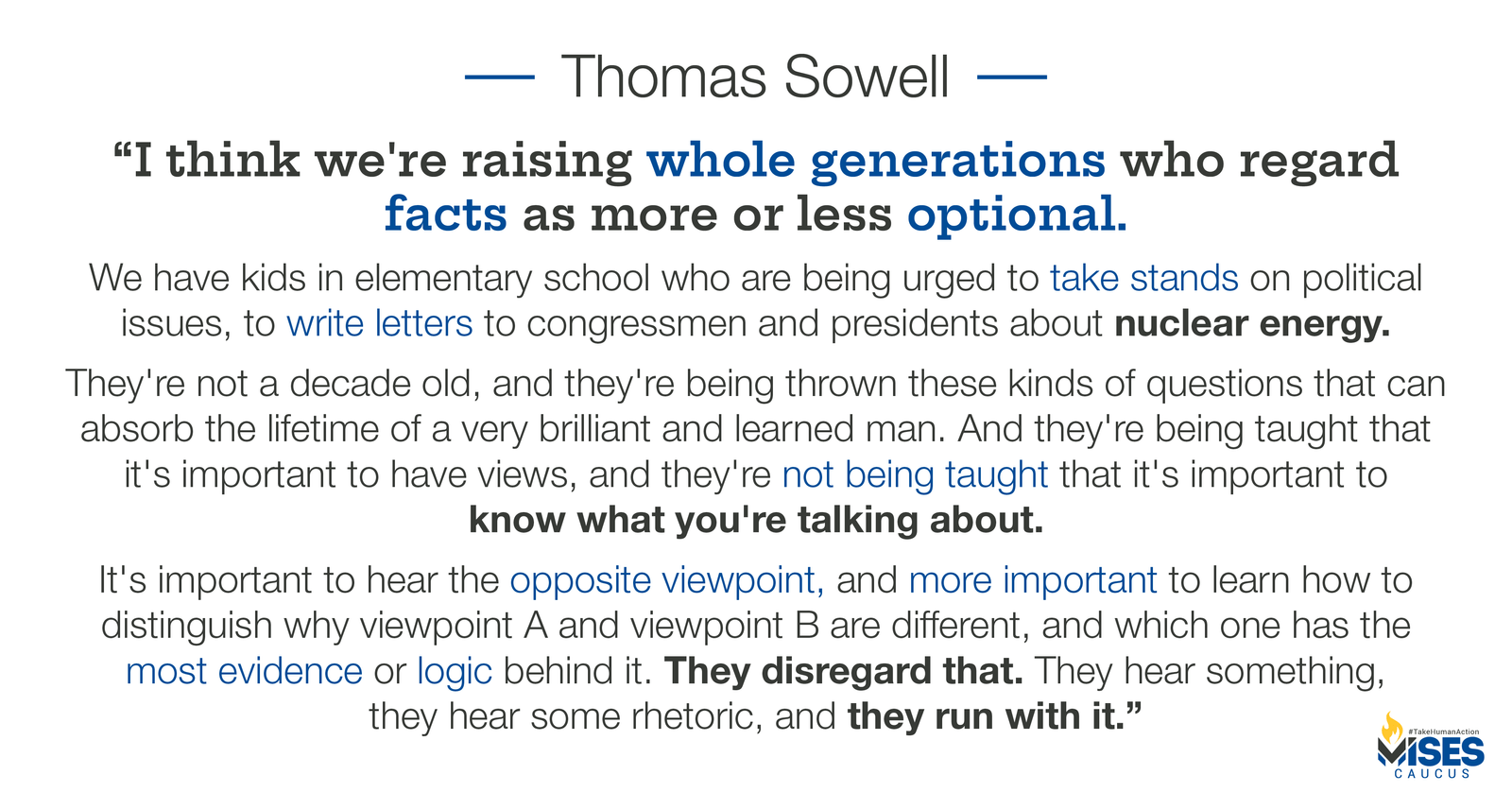
I think we’re raising whole generations who regard facts as more or less optional. We have kids in elementary school who are being urged to take stands on political issues, to write letters to congressmen and presidents about nuclear energy. They’re not a decade old, and they’re being thrown these kinds of questions that can absorb the lifetime of a very brilliant and learned man. And they’re being taught that it’s important to have views, and they’re not being taught that it’s important to know what you’re talking about. It’s important to hear the opposite viewpoint, and more important to learn how to distinguish why viewpoint A and viewpoint B are different, and which one has the most evidence or logic behind it. They disregard that. They hear something, they hear some rhetoric, and they run with it. —Thomas Sowell
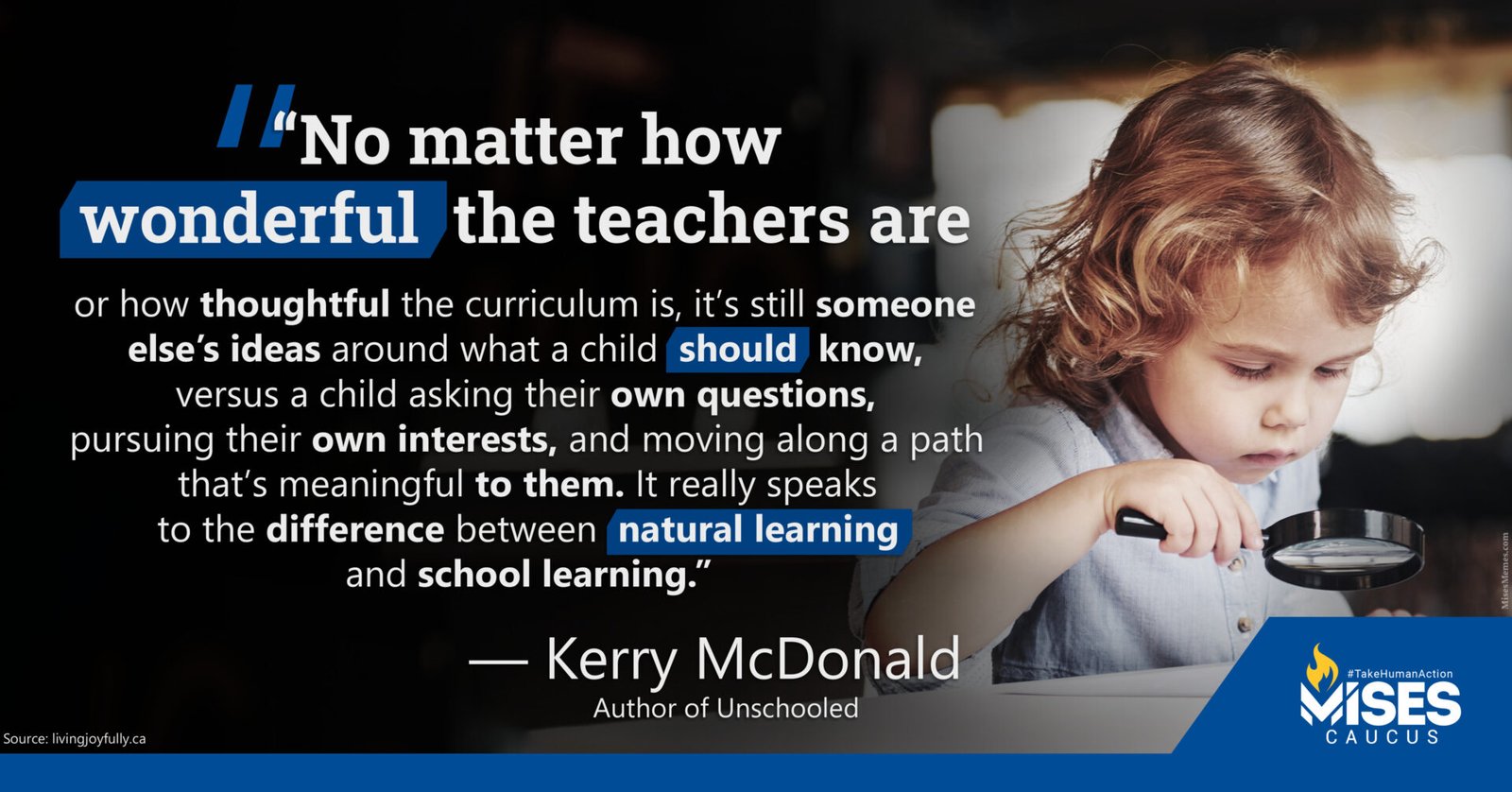
[I]t really speaks to the difference between natural learning and school learning. No matter how wonderful the teachers are or how thoughtful the curriculum is, it’s still someone else’s ideas around what a child should know, versus a child asking their own questions, pursuing their own interests, and moving along a path that’s meaningful to them. —Kerry McDonald, Author of Unschooled: Raising Curious, Well-Educated Children Outside the Conventional Classroom
